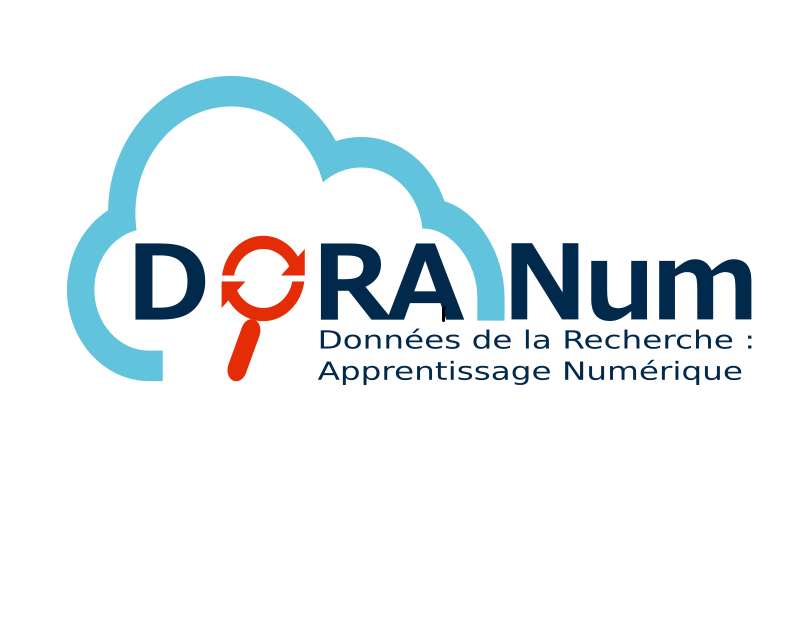Presentation of the 2023 Open Science Research Data Awards
In 2023, the Ministry of Higher Education and Research presented the second Open Science Awards for Research Data. This initiative is part of the second National Plan for Open Science and highlights the work of young researchers, projects and research teams who manage and disseminate data. Some of the research involved is based on re-using data that are already available.
The prizes are divided into three categories:
- The ‘Data Reuse’ category rewards two young researchers who use data which are already available in their research projects and make the data they produce themselves reusable;
- The ‘Creating the Right Conditions for Reuse’ category rewards three teams for exemplary work in managing research data to make them reusable;
- The ‘Jury’s Special Prize’ rewards two exemplary projects in terms of opening up or sharing data.
The prizes were awarded at the 2023 Open Science Awards ceremony on November 29th 2023.
The ‘Data Reuse’ category – young researchers prize
Alix Chagué (PhD student, ALMAnaCH team, Inria Paris & CRIHN, Université de Montréal) & Thibault Clérice (starting research position, ALMAnaCH team, Inria Paris). Their HTR-United project is a catalogue for users to find and share training data for the automatic transcription and segmentation of documents, including manuscripts. This project makes a wide range of media available along with various sets of training data. It also gives access to validated codes and models (Machine Learning for text recognition) resulting from training on these same sets of data. It promotes the recognition and re-use of such data in compliance with all the FAIR principles (Findable, Accessible, Interoperable, Reusable).
Charlotte Duvette is the current head of the Richelieu project and an associate researcher at the HiCSA (Cultural and Social History Of The Arts) research centre. She defended her thesis in January 2022 at Université Paris 1 Panthéon-Sorbonne. Her project on the history of the Richelieu neighbourhood examines the tangible and intangible heritage of a nineteenth-century district of Paris through its iconographic representations and development as parcels of land. The project uses open-source tools (SQL database, website, API) and the IIIF interoperable standard to centralise resources produced by different digital libraries and thus addresses issues associated with open data in history and digital humanities research. Charlotte Duvette also joined the Huma-num ‘Time Machines’ project consortium in 2023.
The ‘Creating the Right Conditions for Reuse’ category
HMBD – Human Multiple Births Database
HMBD – Human Multiple Births Database is a humanities and social sciences project for an international database on multiple births that gives statistics on the number of births of twins, triplets, quadruplets and more. Its dual aim is to provide responses to public health issues and find out more about the variations in twin births from one country to another.
This project received funding from the National Research Agency and involves a team of 3 people: Catalina Torre, a post-doctoral researcher at the French National Natural History Museum, Arianna Caporali, a research engineer at the French Institute for Demographic Studies and Gilles Pison, project leader and professor at the National Natural History Museum and the Institute for Demographic Studies.
The DataSusFood project: Structuring and opening data to improve the sustainability of food systems
DataSusFood: Structuring and Opening Data to Improve the Sustainability of Food Systems is a chemistry and processes research project that works on developing an interoperable ecosystem of tools based on food and bioproduct engineering ontologies for more sustainable agri-food systems. DataSusFood uses the semantic web to make open data available through data integration in compliance with the FAIR principles (Findable, Accessible, Interoperable, Reusable).
Since 2014, the project has received a great deal of funding – from the INRAE’s research departments and more recently from the ANR in the framework of a call for open science projects. It involves a multidisciplinary 27-person team and was submitted by Magalie Weber, currently an information and communication technology engineer at the INRAE.
The Pofatu project – Using geochemistry to reconstruct past inter-island voyages in the Pacific
‘Pofatu‘ is a humanities and social sciences project involving a database of geochemical composition and contextual information. These data are used as an archaeological source to generate maps and reconstruct the movements of Pacific island populations. The methodology developed in the project will enable this form of work to be adapted to other geographical zones.
This project is led by Aymeric Hermann, a researcher at the TEMPS (‘Technology and Ethnology of Prehistoric Worlds’) joint research unit (UMR) – (CNRS/Université Panthéon-Sorbonne/Université Paris Nanterre), with the participation of Robert Forkel, an engineer at the Max Planck Institute for Evolutionary Anthropology.
The Jury’s Special Prize category
The EHDS Project: Disability and Social Destiny Survey
EHDS ‘Disability and Social Destiny‘ is a humanities and social sciences project that brings together quantitative and qualitative data on socio-economic inequalities linked to disability. Along with the data, the project leader has made a personal study on the methodology of self-reporting in the humanities and social sciences. The documentation of this work means the self-reporting approach can be virtuously reproduced.
This project involved 8 people (professors, research professors, librarians, study and research engineers) from the Institut d’Etudes Politiques de Paris (Sciences Po Paris). It was carried out in the framework of the thesis of the project leader Célia Bouchet who generated the data and self-deposited them.
The SHIP project: Hippocampal activity during memory and visual perception: the role of representational content
‘SHIP: Hippocampal activity during memory and visual perception: the role of representational content‘ is a biology/health research project that brings together various positive practices using an open science approach. It involves writing a ‘registered-report’ to replicate published results and then making all the data and materials accessible for re-use by the scientific community.
This project was led by a team of 5 people – a doctoral student, a university a professor, a neurologist, study and research engineers – from the Laboratory of Psychology and Neurocognition at Université Savoie Mont Blanc. The project was submitted by Jérémy Gardette who was a PhD student at the start of the project.
Jury
The jury for the 2023 Open Science Research Data Awards was chaired by Anne Laurent (professor of computer science and director of the University of Montpellier’s Data Science Institute) and made up of:
- Jean Aboudarham (CNRS/Paris Observatory)
- Anne-Sophie Archambeau (IRD)
- Pascal Bonnet (CIRAD)
- Aude Chambodut (University of Strasbourg)
- Thomas Cottinet (Ministry for Ecological Transition)
- François-Xavier Coudert (CNRS/Chemical Research Institute Paris)
- Servanne Monjour (Sorbonne Universités/CELLF)
- Hadi Quesneville (INRAE)
- Etienne Roesch (University of Reading)
- Camille Simon-Chane (ENSEA)






